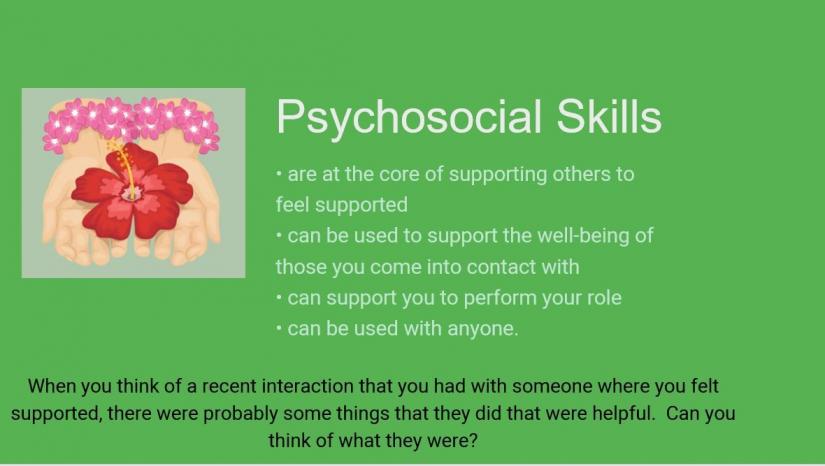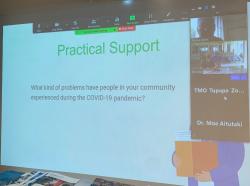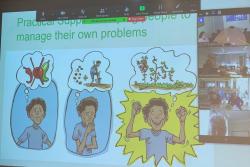An online course on Basic Psychosocial Skills has become available, access the FREE course here.
Find instructions on how to sign up here.

In the context of the global pandemic of COVID-19, people who are in first responder roles are experiencing increasing stress and pressure and are being called on to support others in their communities with high rates of stress and distress. Supporting mental health and wellness is recognised as being a key component of effective health promotion during this challenging period. As a means of contributing to the preparedness and support for first responders, the WHO Collaborating Centre at UTS (WHO CC UTS) has worked since mid-June to adapt the IASC Basic Psychosocial Skills: A Guide for COVID-19 First Responders for use in Pacific Island Contexts, creating teaching resources that were accessible and engaging for communities in the Pacific. A Pacific Working Group was established which included members from 6 Pacific Island Countries. The Working Group convened several times during July and August for discussions, Zoom workshops, and structured feedback opportunities on the First Responder resource, and their detailed feedback was incorporated into the development of an adapted training resource of Basic Psychosocial Skills: A Guide for COVID-19 Responders.

On the 21st of October, WHO CC UTS held a virtual event wherein front-line workers from Solomon Islands were facilitated in workshopping basic psychosocial skills and practices. Largely, by virtue of the feedback, the session is regarded to be a success. The strengths of the training were identified to be the case study examples, and the interactivity of the training and the opportunity for discussion with each other. Participants were also asked to identify any weaknesses or things they would like to learn more about, and themes emerging were that more time would have been helpful- online training was seen by some to be a challenge, and even more opportunities to practise skills would have been appreciated.
Here are some entries from the positive feedback:
The training is timely and important during this time. We need to have more of this training
It is relevant at the present situation. All health practitioners should have access to this information/training
All of the modules are important because they are connected but to be direct, I think the self-care/caring [was the primary strength of the session] for our own wellbeing so we can care for others
I enjoy the psychosocial fact of the training which involved finding solution for those in need
The weaknesses of the training were seen to be centred around how the transition to an online environment required more time to run the program.

Moving forward to another workshop on basic psychosocial skills, WHO CC UTS incorporated the feedback from the previous sessions. A workshop took place on the 12th of February for the health workers from Cook Islands. Attendees comprised of 4 main groups 5 different mental health team members, a team of 4-5 primary healthcare workers from one of the outer islands and several other individual healthcare worker from outer islands.
In conjunction with the PowerPoint presentation/ teaching resources, four short videos were developed and produced for use on social media, which were uploaded onto the WHO CC UTS YouTube channel (Click here) to be shared widely throughout the Pacific. The videos focus on central psychosocial skills and encourage the viewer to engage with the full resource. The development of these videos involved considerable input from Pacific colleagues including the development of scripts, the sharing of video content, and the review of the draft Basic Psychosocial Skills YouTube showcase videos. Before these videos were uploaded, they were reviewed and adapted to be in line with the recommendations from the Pacific Advisory Group.
The next stage is an online course to share widely to continue to prepare colleagues and health workers in the Western Pacific for events such as the COVID-19 pandemic.
Full Resources available at:
https://www.who.int/news/item/01-06-2020-basic-psychosocial-skills-a-guide-for-covid-19-responders
Module 1: https://youtu.be/RJsVGZhGfLE
Module 2: https://youtu.be/FNxTfTJ_K7Y
Module 3: https://youtu.be/W8Yv2cj1gZ8
Module 4: https://youtu.be/XHSbO-quDTQ
Please see pdf of Power Point presentation for more information and full PowerPoint with facilitation notes, please contact michele.rumsey@uts.edu.au.

